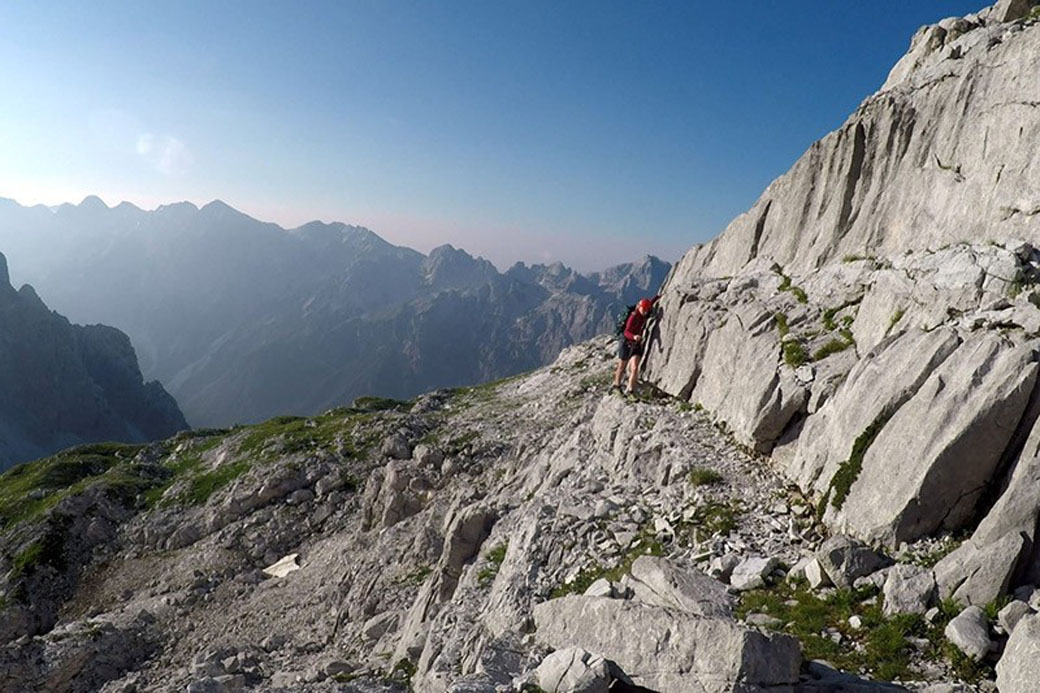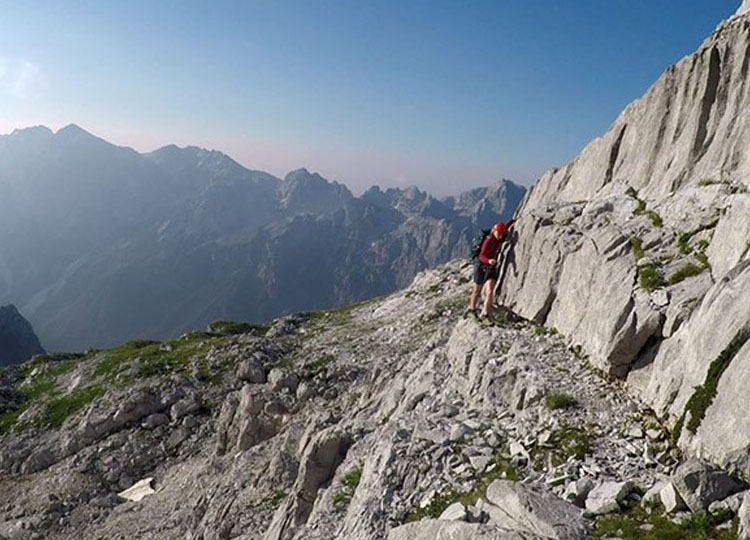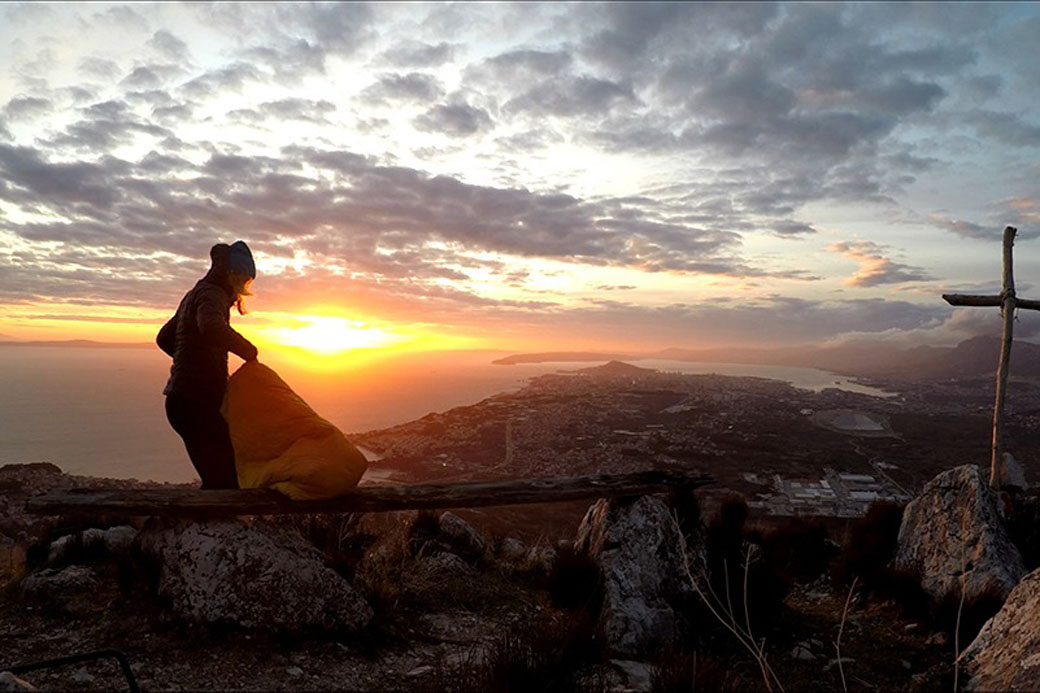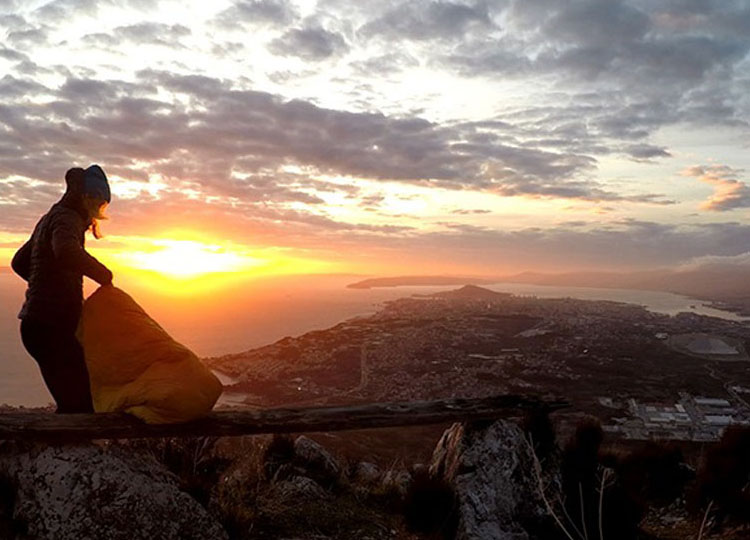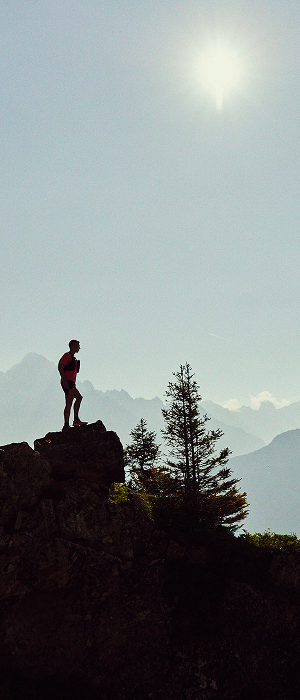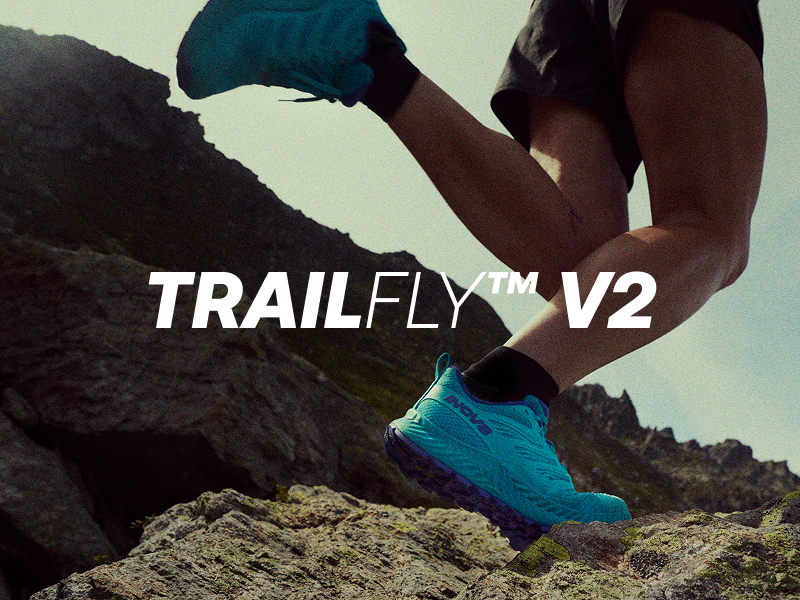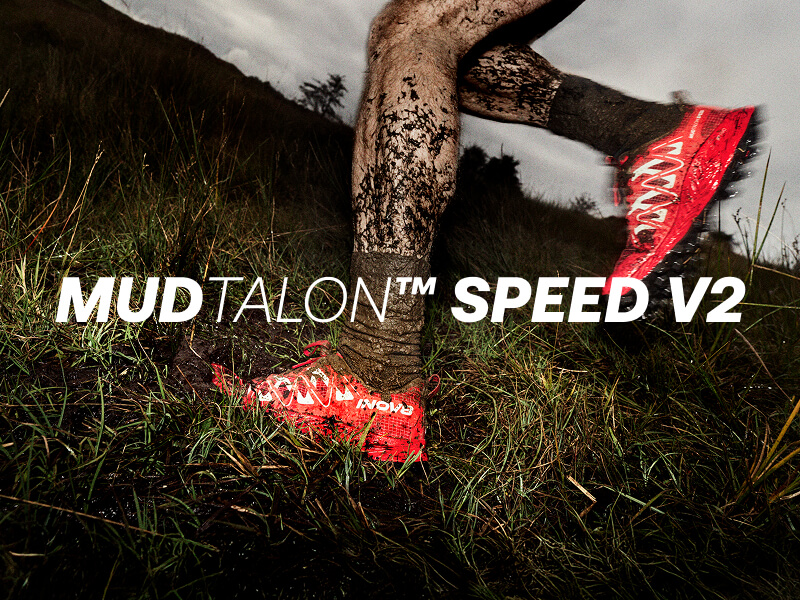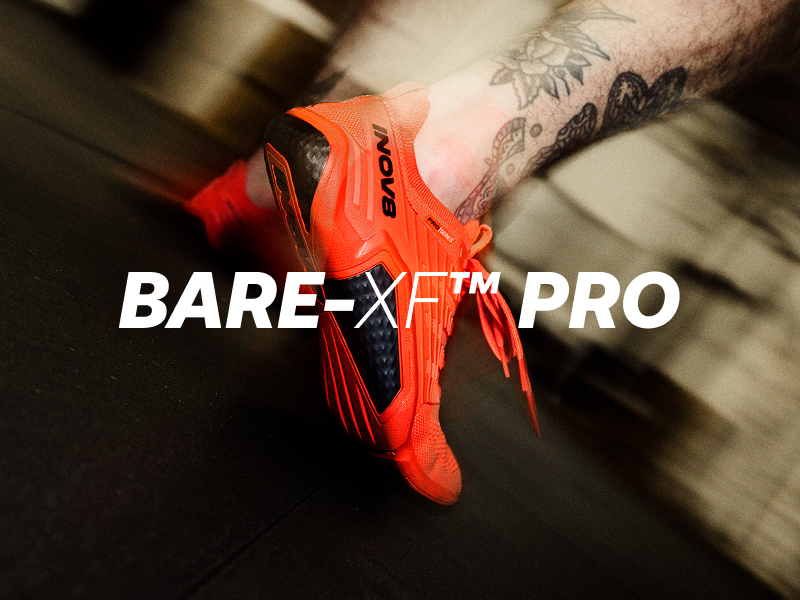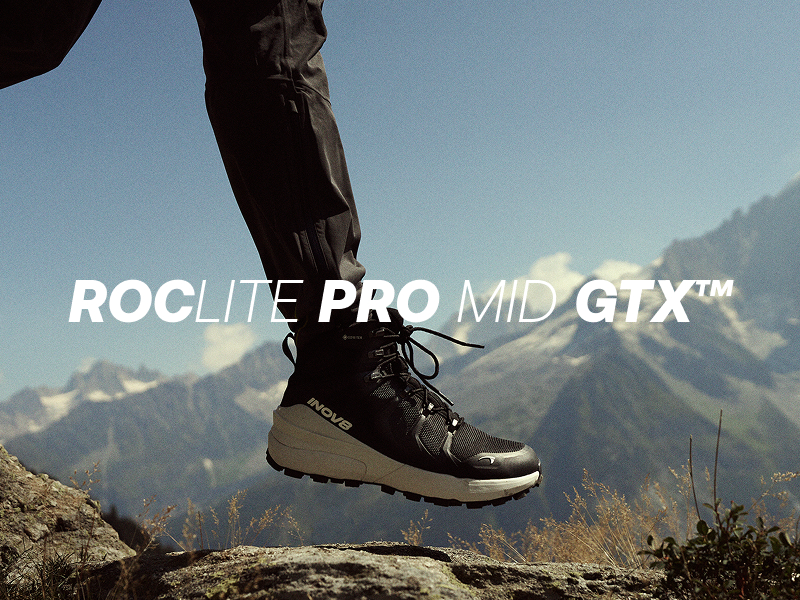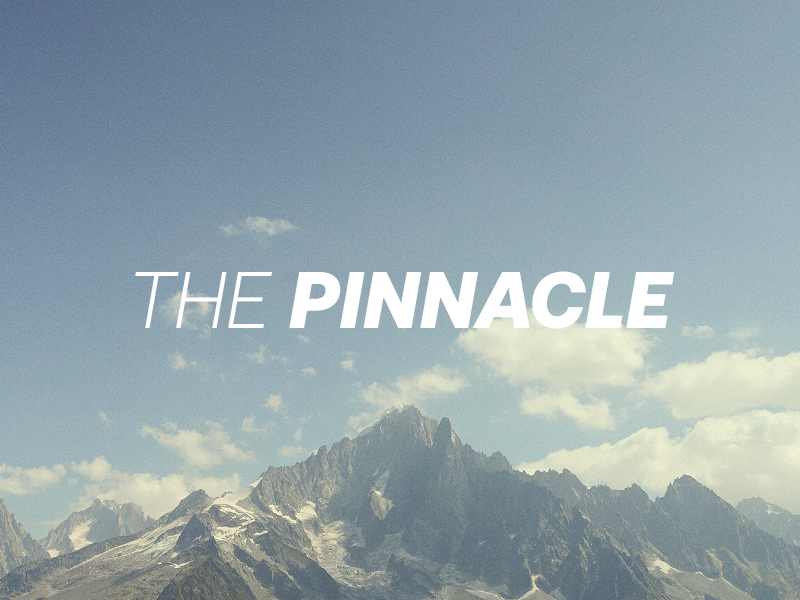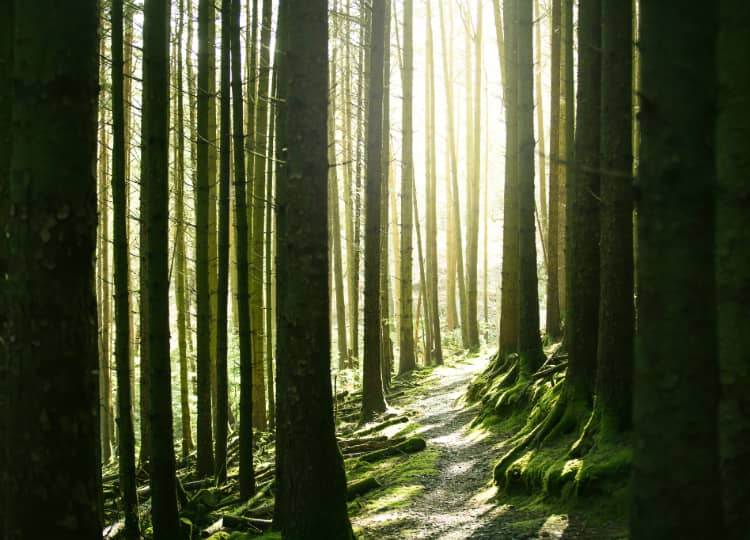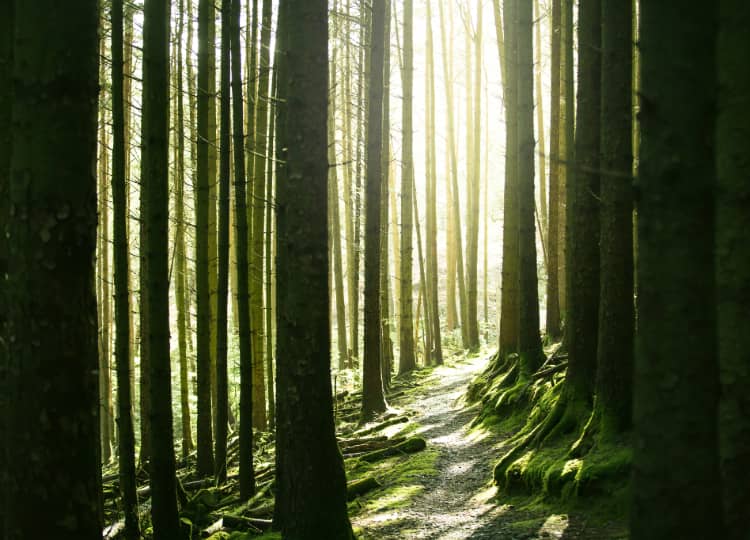
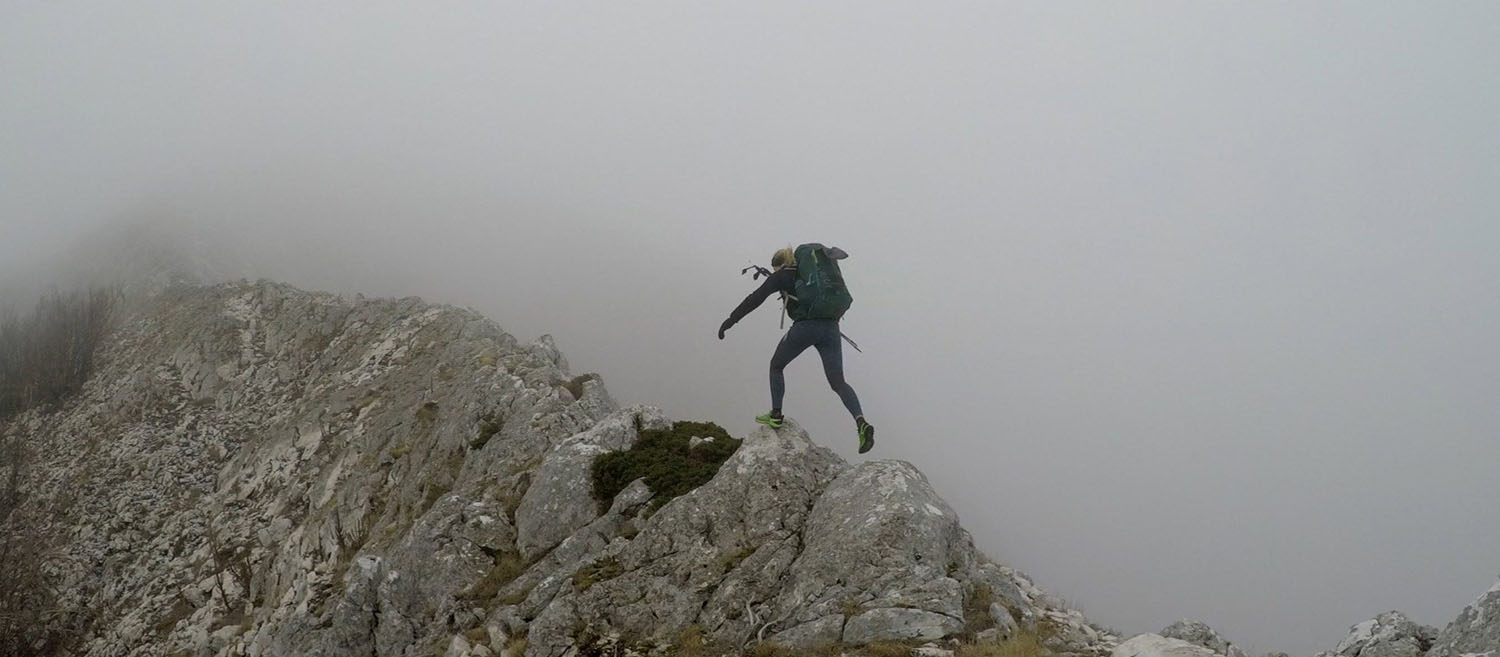
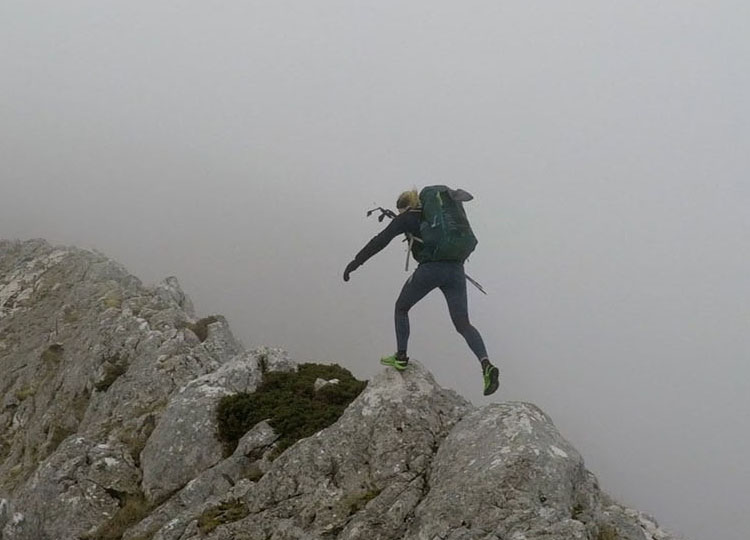
SHE IS FEARLESS: ROSIE WATSON
We caught up with Rosie Watson - a fell runner, climber and climate emergency activist from the Lake District, UK. Rosie recently set out to run from home in Northern England, across Europe to Mongolia, searching for stories of new ways of living, working and meeting our needs in the time of climate crisis.
Running from the UK to Asia is an epic undertaking, what inspired you to do it?
I wanted to do something to tackle the climate emergency that combined my passion of running and having a big adventure - instead of tackling it through being in an office every day, which is what I had been doing. The New Story Run film by Guy Loftus has the best explanation of this!
When did you become passionate about fighting climate change, was there a particular trigger?
There wasn’t really a trigger, it was a gradual realisation I think. I knew I wanted to do something to ‘make the world better’ from quite a young age. When I was looking for university degrees I decided that business seemed to have the most ‘clout’ in the world, so figured that they should also be the best, biggest-impact way to make positive changes of some kind. I ended up doing an Environment and Business degree at Leeds, but it wasn’t really until I did a Year in Industry and got some very varied, real life experience of the area that I got really into it.
I guess now I look back, my childhood of growing up mostly in the outdoors obviously had a big influence too, but I didn’t think that at the time.
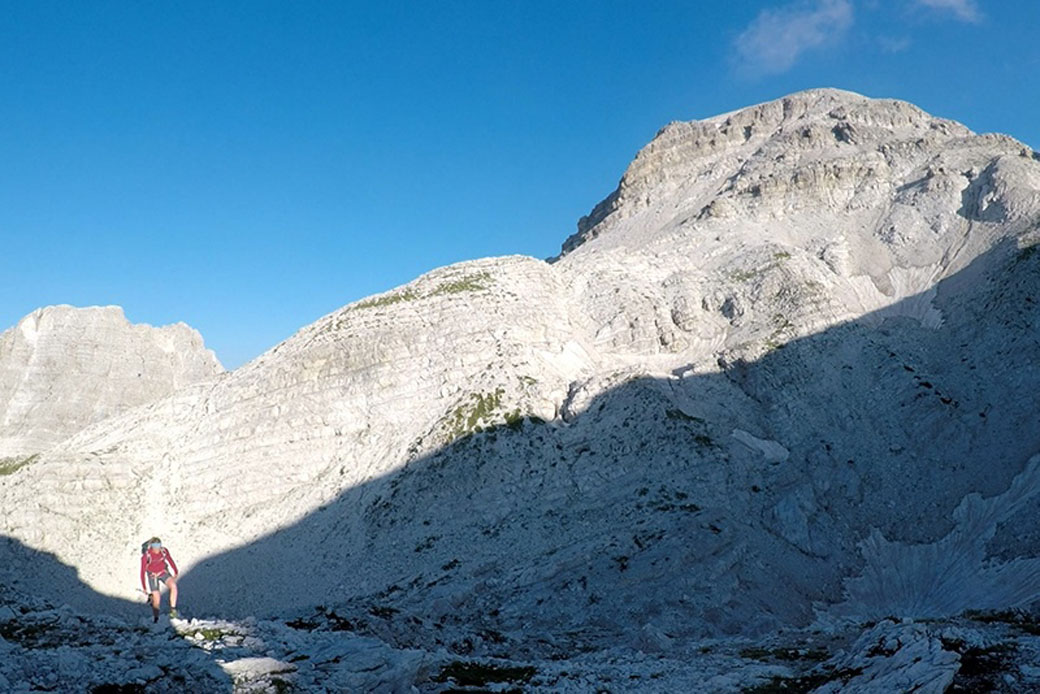
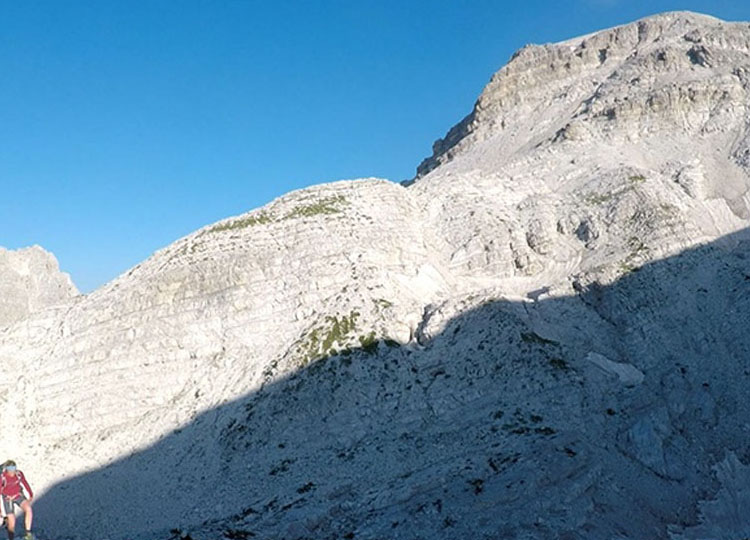
Do you feel being a woman influences your perception of the climate emergency and climate justice, and if so, how?
Wow, interesting question! I’d never really thought of it like that before… but on the New Story Run, there was one meeting that really changed how I thought about the climate crisis; I now see it more as an exploitation/equality issue, than an environmental issue. That was meeting Mirishahe Syla in Kosovo, and hearing her perspective of this theory called ‘ecofeminism’. This theory argues that ‘hierarchical thinking’ - putting one group(s) above another - is behind all of our biggest global issues. E.g gender equality, is caused by the thinking/worldview that men are more important than (and can own and control) women.
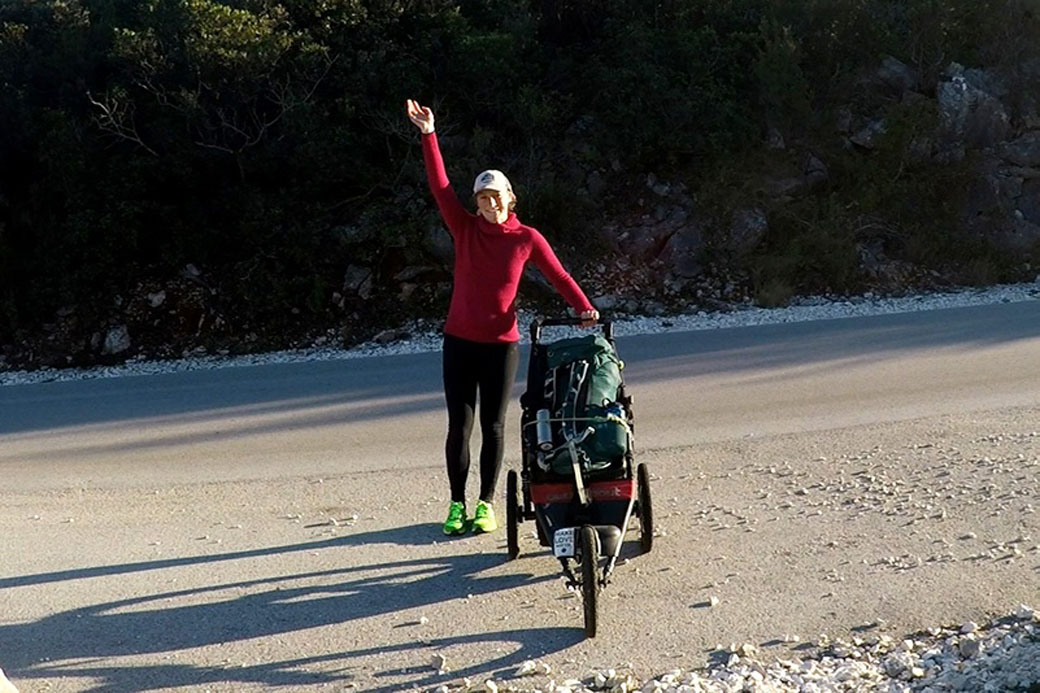
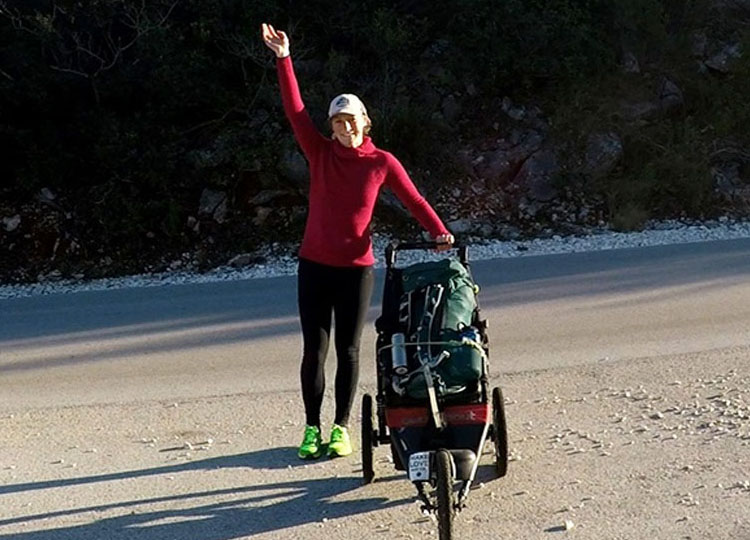
The exploitation of natural resources & the climate crisis comes from the mindset that humans are the most important species/thing on the planet, and should own and control the rest of nature and should exploit it all for their needs and wants. Racism comes from the mindset than some skin colours are more valued than others. Etc etc! So essentially everything (that’s bad) comes back to some form of inequality & discrimination in how we think, and so the roots causes are the same for all of these issues.
This really changed how I saw everything to do with the climate emergency, its causes and possible solutions. Maybe that was easier to grasp, being a woman who already experiences some of those issues? I’m not sure though!
What would your advice be for someone who would like to start living in a more sustainable way, where would they start?
Apart from embracing trains over flights, and reducing your meat/dairy consumption, forget ‘individual actions’ and focus on wider change!
For example, one of my favourite people I met was Teodor who worked in a hotel in Ljubljana. You wouldn’t describe him as an activist, or environmentalist, he was just a guy with a career in hospitality; but their hotel offered discounts for people who arrived by public transport, were part of setting up a local food network to supply hotels in the area, had ‘green facts’ about the city for customers, had bees on the roof, had regular staff training on sustainability issues, and lots more.
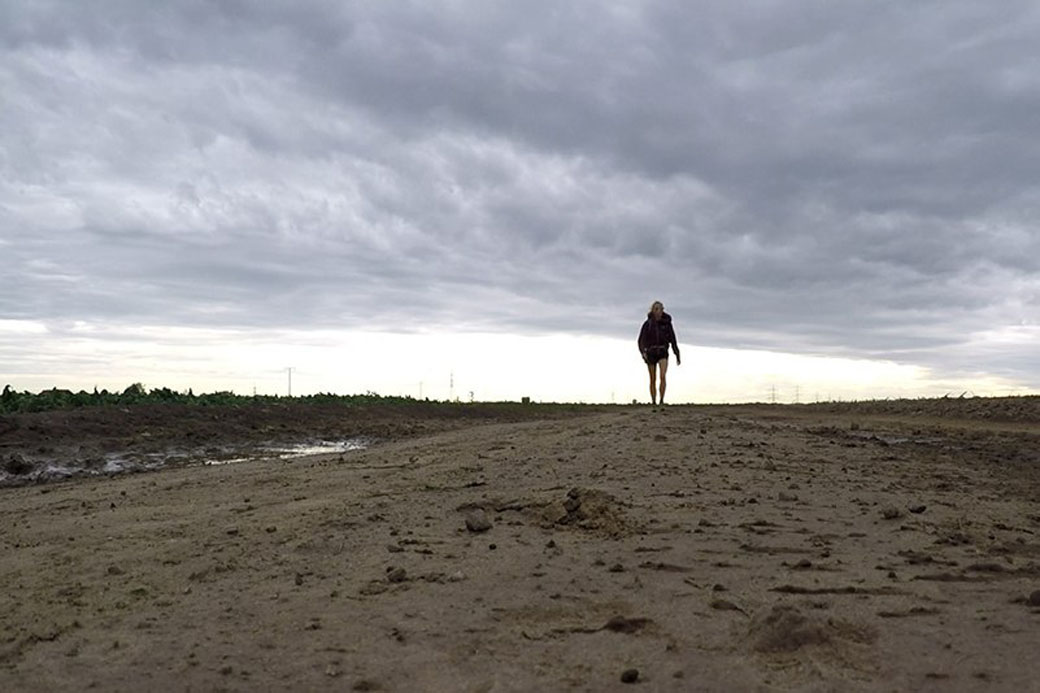
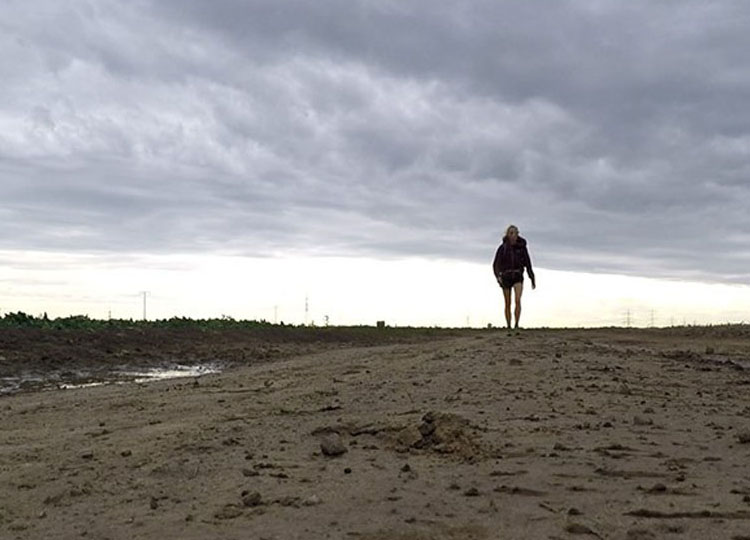
They were truly rethinking what it means to be a hotel in the climate emergency. I say in the New Story Run film that if you want to take action that “You can do anything you want because everything needs to change”. What I mean by that is whatever you do already - be it architecture, hairdressing, building, making films, being an accountant, working in a cafe, working in a shop - literally anything, you name it, needs to be re-thought and re-created to be fit for tackling the climate emergency! That’s super exciting - one of the best things you can do is go to work as normal on Monday (or your local club, or school, or any other ‘group’ you have a hand in), and start getting your workplace to re-imagine how it should be that’s better for the world.
Taking action in this way has a much bigger impact, and it is also more fun as you do it as a group and connected to more people. A real theme across everyone I met on my journey, was how much of their motivation came from being connected to other people who cared about similar issues. You can create much more momentum and have way more fun with a collective effort!
The other thing I’d encourage anyone to do is to go to a protest! Protests get an extremely warped and inaccurate image on our media. Environmental protests in the UK like Extinction Rebellion, or supporting Fridays for Futures protests, are super fun, have an incredible festival-y and positive atmosphere, are extremely respectful, inclusive and safe, and are the easiest way to create change while being very non-committal. You can literally turn up, hang around being a body in the crowd for half an hour, and go again. But numbers of people in the crowd is everything, so just doing that is hugely powerful, much more than agonising for hours over which trainers to buy. I’ve even heard politicians directly thank protesters before, for creating enough momentum that it allows them to make much bolder political suggestions to tackle the climate crisis!
Finally, one for the outdoor community - at the end of the day, there is no way that buying another ‘sustainable’ trainer, or organic cotton top, or recycled jacket, is going to save the planet. We all need to consume way, way less (you really don’t need 10 pairs of running shoes, and don’t need a new t-shirt until your other ones are full of holes, and then you can probably find a second hand one that’s as good as new!). Brands need to totally rethink how they exist so that they’re not driving this destructive consumerism. As an individual, you can really shout for this change by calling out anything that sounds like greenwash, and promoting second hand gear and repairs, and asking brands to do the same.
On your trip, what were the highlights for you?
The trails and mountains in Croatia were incredible, and so were the people who maintained them. Being there in winter felt like discovering an unknown paradise - a brilliant place for running. Albania was another highlight, as it has such an amazing culture in the mountains, and was more mysterious e.g. having to find my way with guesswork more than maps. It’s definitely the most unique country I’ve been to in Europe - it’s very different, in a good way. The people were incredible in all countries, but the hospitality and kindness in Albania really was another level.
From the people I met, meeting Igo Rugova in Kosovo was amazing - a super inspiring strong woman with the best quote: “If I can’t dance, I don’t want to be part of the revolution”.
Joining the Fridays for Future International strike in Sept 2019 was amazing too.
And all the random encounters with people who took me in, gave me a place to stay, filled my water bottles, etc - that was the best. I couldn’t have kept going without that!
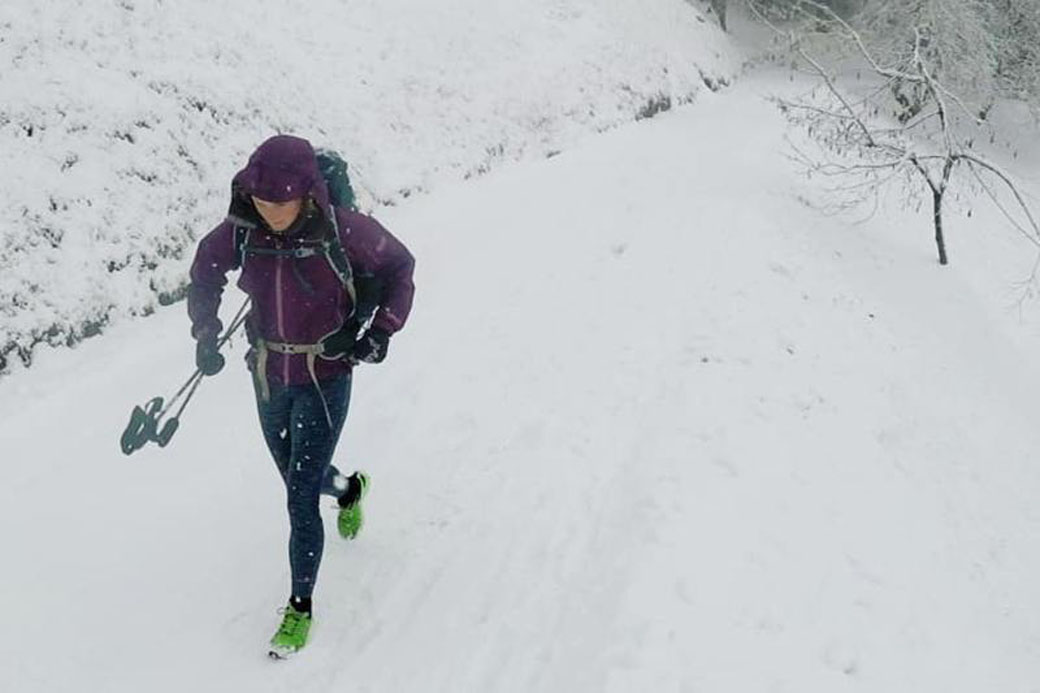
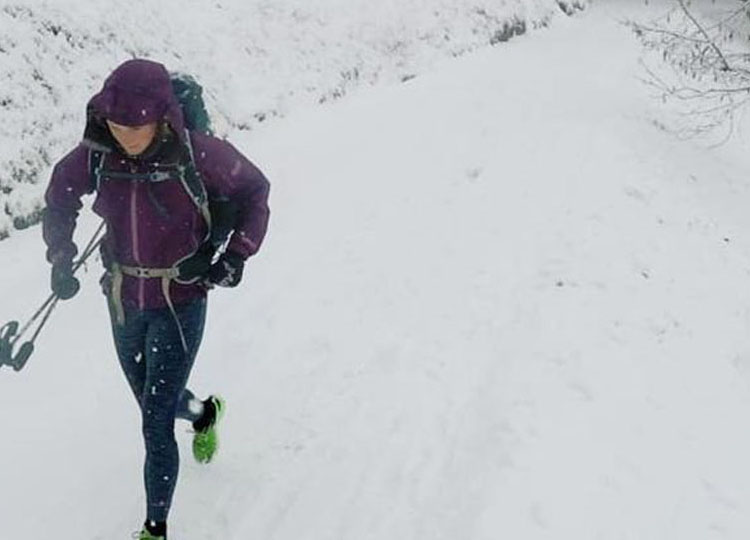
What challenges did you face and was there ever a time you were concerned for your safety?
Safety - no more issues than I might have had in everyday life in the UK - unfortunately women still get targeted wherever they go and whatever they do (even if they stay at home all the time). On the whole though, I learnt that the world is a much more safe, friendly and welcoming place than I ever could have imagined. I already had quite a solid faith in humanity but I was really blown away by the amount of people who randomly gave me a meal, a bed for the night, general help, etc, often with no warning at all and without even knowing what I was doing there! So for any other women wondering about doing something similar - seriously, do it, you’ll have an amazing time and be well looked after.
Challenges - there was way more road than I’d initially thought, and running on tarmac with a rucksack is a really bad idea! I had to quickly make a rule to only walk when I was on roads, otherwise I just got injured/made niggles unmanageable. The hardest bit was getting over the Alps as I didn’t make it in time before the snow came, so all trails were cut off and I had to walk along these long busy roads with no pavement for days - the hard thing was the psychology of that constant traffic noise, it was infuriating.
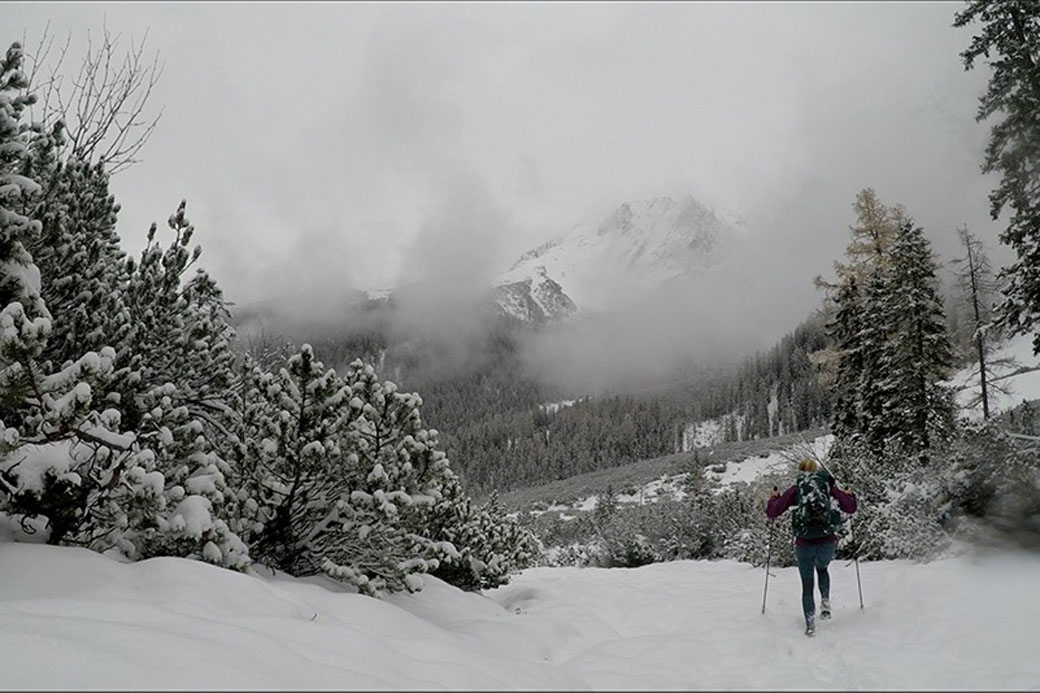
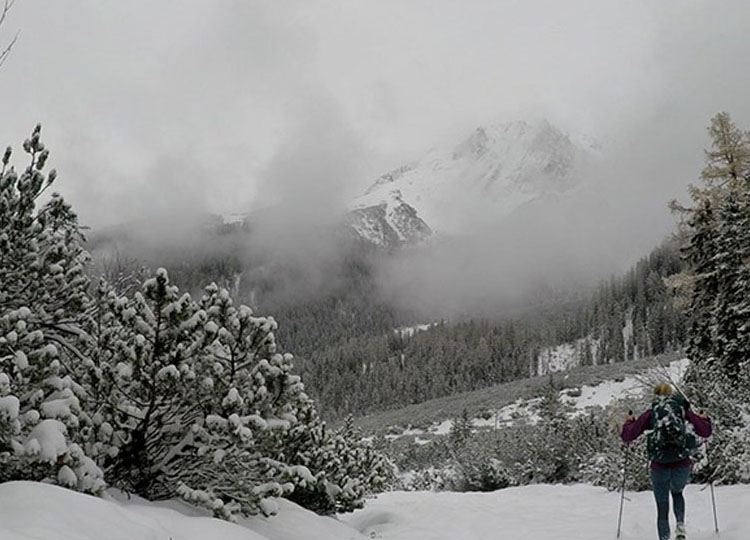
It must have taken a great deal of courage to take those first steps, what advice would you give someone about to embark on a challenging adventure of their own?
Set a date (soon enough to be scary) and block out time as the first step, and turn down absolutely everything that tries to change this. Then make a rough plan of what you want to do, based on your existing budget (wild camp & cook own cheap food = super cheap, you could live off <£50/week; or use a Patreon blog for extra funds). Use what gear you have, borrow, or get cheap stuff second hand, then set off and figure all the rest out ‘on the go’!! Recognise that a lot of the barriers you think you have are probably just excuses. You could be setting off for a huge adventure in a month or less if you really wanted to.
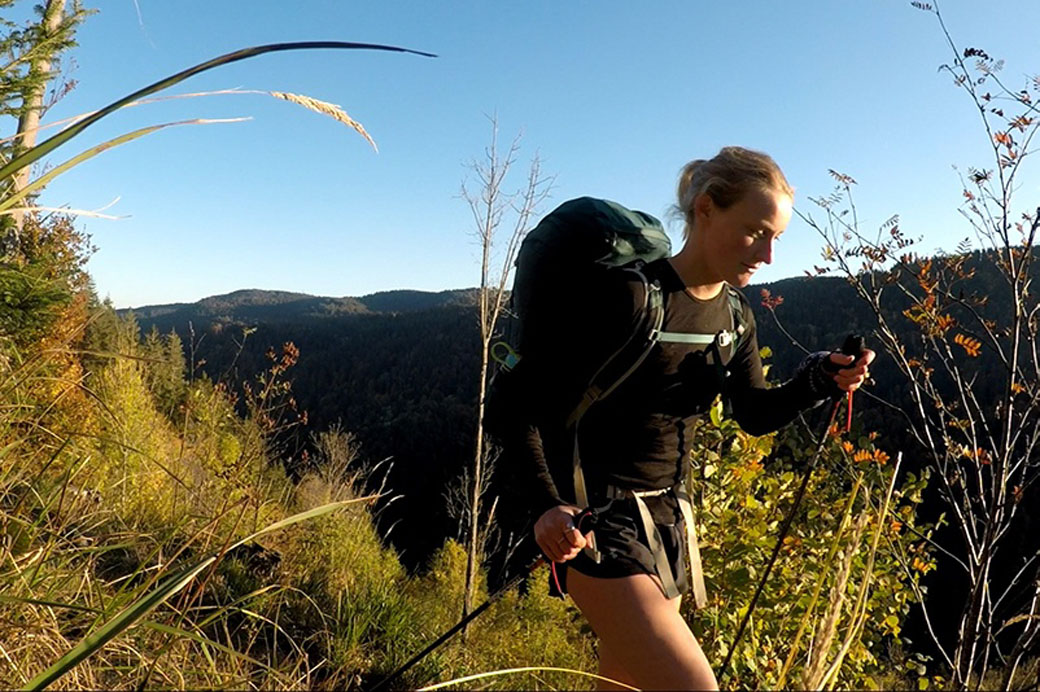
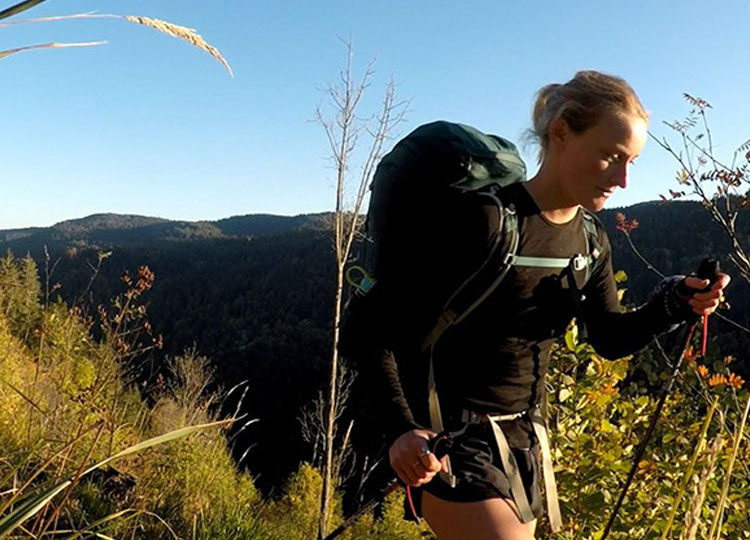
People often use the ‘but I’ve got a job’ excuse…but it would take 15 mins to write and hand your notice in!
People often cite their relationship… a week being away, two weeks, even 6 months or a year, shouldn’t be the end of it if it’s a really good one! People often use their kids as an excuse… there are plenty of examples of people taking their kids on crazy adventures!
I don’t mean to be insensitive to people's circumstances - the barriers people face can seem strong, especially when they are imposed by society e.g. inequalities & not seeing any examples of people like you doing similar things. This is very real. But you can definitely break through these - just force yourself to take the first step and get out of the door, figure out the rest later.
Was there ever a time when you didn’t feel so fearless?
I don’t think anyone is fearless! Fear is a tricky thing, as it can be all encompassing and override all rationality, and I’ve definitely experienced that on my journey. I hate to sound this cheesy but I’ve found that self-talk can really help, i.e. a little pep talk in your head. Just take a moment, tell yourself you can do this (whatever it is), list all the reasons why you have the ability to do this and not be afraid, set out your plan of action, tell yourself again you’ve got this - then go (to do whatever it is you need to be fearless for!).
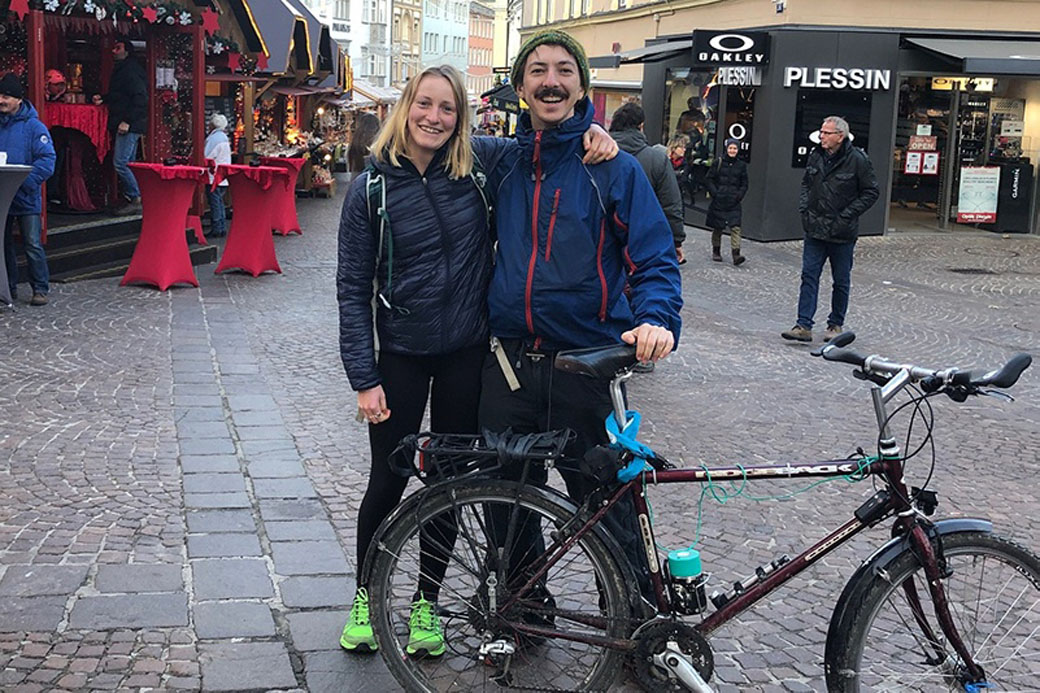
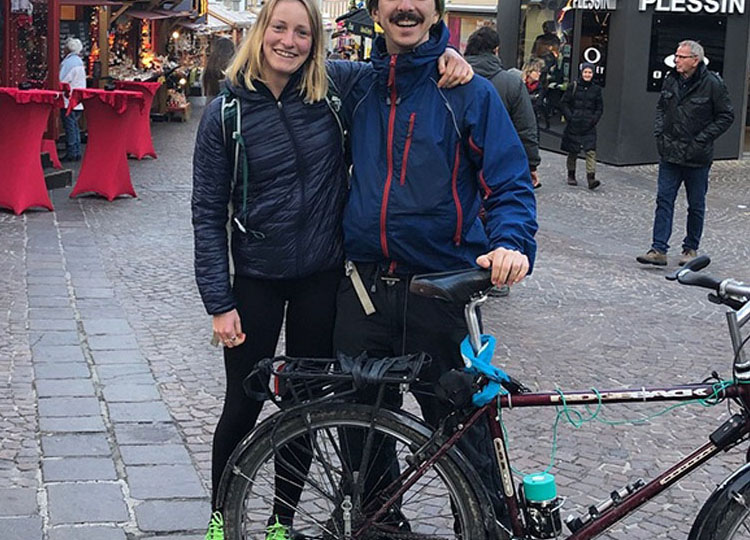
Who do you look up to for inspiration?
Kate Rawles - an awesome adventure-activist who rode the length of S America solo on a bamboo bike, amongst other things.
Vanessa Nakate - Fridays for Future young climate activist from Uganda. She has the impact of Greta Thunburg, but has to overcome so many more barriers and discriminations to do what she does.
In running - anyone who runs in a really competitive, ferocious way - we need more of those examples as women! E.g. Victoria Wilkinson, Tovy Alexanderson (from Sweden), Kelly Roberts from Helm Hill (feels very cringey to write that but I really admire her dedication and competitiveness).
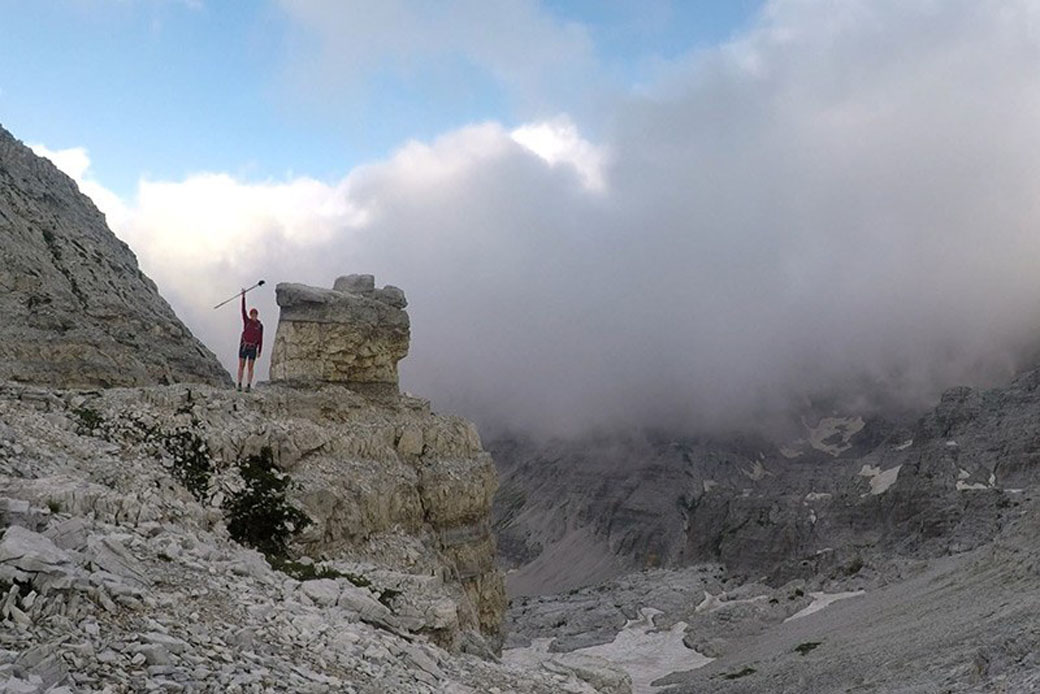
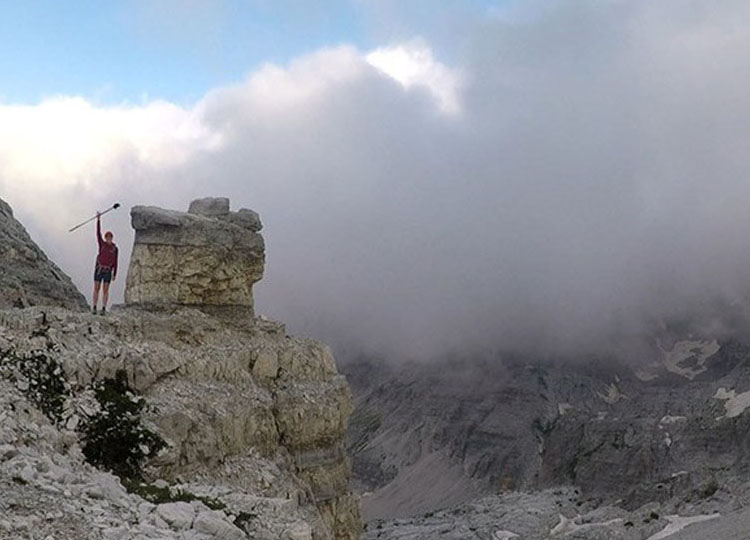
After such an epic adventure, one has to ask… what do you have planned next?
The New Story Run is still on! I only got to Bulgaria, 4800km, before I had to come back and wait a bit because of the pandemic. I’m not even halfway to Mongolia yet, so the plan is to head back in early summer 2022 and set off from where I left off. But for this year, tbc…. but I might have a smaller-but-still-great running adventure idea brewing, coinciding with COP in Glasgow, a big political climate-action event!
